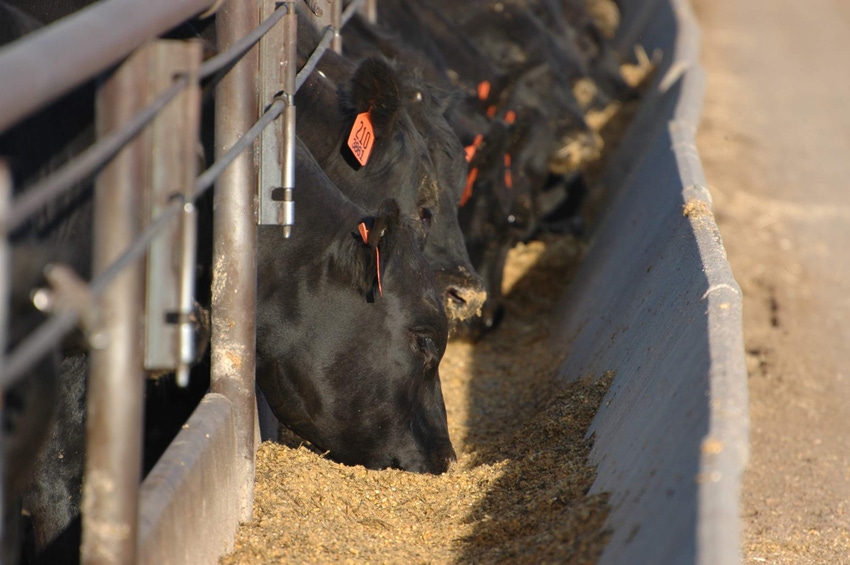Beef sustainability: It’s not a buzzword anymore
Just as our industry has evolved, so have consumers. They are disconnected from their food, but they crave more information.
June 12, 2019

By Ben Weinheimer
Editor’s note—Occasionally I’m offered an editorial, now-a-days called a blog, that does an excellent job describing an issue or situation that needs to be addressed. Such is the case here.
Many BEEF readers are familiar with the term “sustainability,” yet may scoff at it as nothing more than another mindless consumer trend. Scoff no more. Sustainability and its implications for beef producers, is here to stay. Here’s a look at how the beef business is addressing this issue head on.
The way we produce and market beef in the United States has evolved over the past century. Not long ago there were only two steps separating consumers from producers.
Now there are many specialized segments of the supply chain. At the same time, modern technology has increased the speed of commerce, while access to unlimited information has changed the way consumers make purchasing decisions.
This evolution results in consumers who feel disconnected from the people who produce their food and opens the door to misinformation about beef.
Read: Meet the beef cow: AKA The Great Upcycler
These issues are not going away.
As we continue to become a more technologically dependent and sophisticated society, the knowledge gap between consumers and food will grow. It is up to the industry to fill that gap with truth and accurate information.
The U.S. Roundtable for Sustainable Beef (USRSB) was formed for this very reason. It is our goal to make the U.S. beef supply chain the trusted global leader in environmentally sound, socially responsible and economically viable beef. This means sustainable beef comes from profitable operations and businesses committed to caring for animals, the environment, employees and communities.
The best way to accomplish this goal is to unite as an industry and align on key areas of importance that build consensus, transparency and ultimately consumer confidence in beef production.
We took a big step toward this goal in May 2019 as the USRSB membership released the U.S. Beef Industry Sustainability Framework — the first of its kind. The framework is a tool kit that gives all parts of the beef supply chain something tangible to voluntarily demonstrate their operation’s sustainability, now and in the future.
Though the goal is to unite under one common definition of beef sustainability, the roundtable would not be successful if we did not recognize the inherent independent nature of the people who make up this incredible industry. That independence sets us apart.
This is why each part of the supply chain developed its own set of resources within the framework.
Read: Sustainability is worth how much?
For example, everyone involved in beef production agrees that animal care is a top priority, but we know that caring for animals on a cow-calf operation requires a different approach than caring for animals on a feedyard. Likewise, managing water resources responsibly at a processing plant looks different than managing water resources in a restaurant.
Emphasizing these differences is key to the framework’s success.
It is important to note that the framework is a tool to be used voluntarily by individuals. It is simply a set of free resources provided to the industry to demonstrate how different operations contribute to beef sustainability.
We also recognize that the marketplace has opportunities for consumer-driven marketing programs, but that is not where the roundtable looks to engage. Implementation in the marketplace is a business-to-business decision that is outside the scope of the roundtable.
Read: Beef sustaniability: it matters to your consumers and it matters to you
On that same note, the framework will not take the place of industry best practices already in place. Rather, we seek to build upon them.
We recognize practices, like the Beef Quality Assurance Program, that have brought the industry to where it is today through voluntary adoption. To build upon these existing programs, the roundtable has a process in place to recognize those programs that align with the key areas of importance.
While this all sounds great on paper, I am often asked if this effort is necessary.
The answer is, “Yes.”
Just as our industry has evolved, so have consumers. They are disconnected from their food, but they crave more information.
They no longer only consider taste and price when making choices. They expect complete transparency when it comes to how their food was raised and what, if any, effect it has on the environment. In fact, transparency is the biggest influencer driving consumer purchase behavior these days with sustainability becoming more and more important.
The roundtable’s job is to help fill the information gap between consumers and food, so that you can continue to be successful at what you do best — producing safe, wholesome beef that people all over the world enjoy.
This framework is complete. It was created as a resource for you to use for your own benefit. It is available to everyone, free of charge, to encourage continuous improvement in our industry. We hope you will use it to help tell your personal story about sustainable beef production.
To learn more about these tools and resources or to learn how to become a member, visit usrsb.org.
Weinheimer is vice president, Texas Cattle Feeders Association and chairman, U.S. Roundtable for Sustainable Beef
You May Also Like


.png?width=300&auto=webp&quality=80&disable=upscale)
